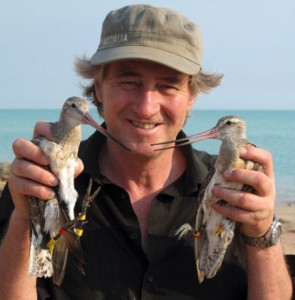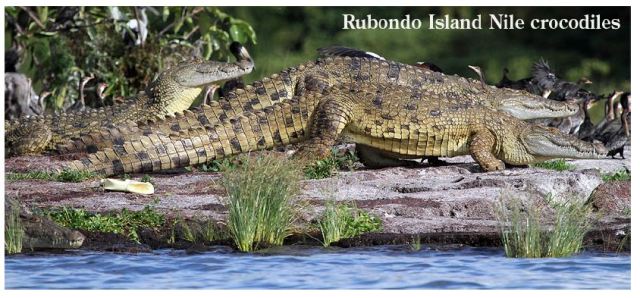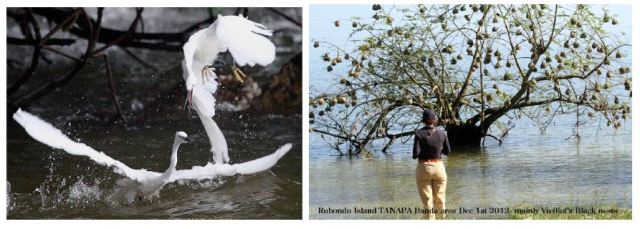Rubondo: A Twitcher’s Island Paradise
By Paul Oliver, founder of Oliver’s Camp and well-known birder
As I contemplate my next visit to Rubondo in early March my expectations are high. I will be there for 5 full days and be accompanied by ‘birders’! We will explore and record thoroughly and no doubt add a species or two to the 300 plus already recorded. That’s the exciting thing about remote locations such as Rubondo Island– there’s always something new to experience or record. During my last visit in late November I enjoyed the variety of bird species but also the sheer beauty of the varied habitats on this fully protected Island National Park. And that’s exactly what a birder wants – habitat variety! From open grasslands on rocky ridges to giant old forest tree stands to dense woodland thickets to expanses of lakeshore papyrus. It all helps with the species count and then you add in that large-lake evening light, the aqua acoustics and the drama of the skies – it is a sensuous recipe for any nature lover or photographer.
 The ecosystem of Rubondo Island
The ecosystem of Rubondo Island
Time spent in healthy forests is never wasted time, the magnificence of wide based hardwood trees makes you linger and stand in awe. They demand respect as they tower 120 feet above you. Even elephants just take a strip of bark to chew on. The bird species living up high in the canopy can give you neck strain on occasion but the birdcall acoustics are otherworldly and often confusing. Common bird species like the sandpiper below can look dramatic on wet rocks. Rubondo is simply full of beauty everywhere you look.
When ‘birding’ we concentrate on detail and usually see more mammal species as well. We are silent and listening so we hear more. “Was that a bat, a bird or an insect?”. “Oh look another bushbuck.” Such respectful walks in forests, along lakeshores or over grasslands are the real stuff of any safari experience and Rubondo walking is bliss!
Danger lurks on Rubondo Island
But beware, Nile crocodiles, giant monitor lizards and elephants also live here and we ‘birders’, concentrating on the movement in trees and bushes, as we do, need a watchful guide along as we bumble around. Always take a guide on a hike and often their eyes and ears are invaluable in finding even more birds and learning of the indigenous vegetation.
Enjoy the bushbuck near your tent, spend time fishing or try to photograph the bird battles at breeding time; but most of all marvel at Rubondo Island’s natural history diversity.
Until my next visit, best wishes,
Paul Oliver
 About Paul
About Paul
I first visited Tarangire in 1985 and completely fell in love with this land of elephants. They dominated the landscape of rolling acacia clad hills, eroded rocky outcrops and open grasslands that seasonally become impassable swamps. It looked so untouched and only a few people seemed to know just how this ecosystem worked.
After a few years of holding talks with and gaining the support of, Local village and District level leaders, National Parks and Central Ministry officials, and receiving the support of many Wildlife Societies and concerned safari operators, I opened a small bush camp on the Park’s Eastern Boundary in 1992.I called it Oliver`s Camp. Why? Many people have asked me that question, but in truth I thought that it was an easy name to remember and as I was already fairly well known at the time as a safari guide to the parks of Northern Tanzania- it seemed that the name could only help get the camp known.
If you would like to find out more about Rubondo Island please visit the camps website here.
The post Rubondo: A Twitcher’s Island Paradise appeared first on Asilia Africa.
More Wildlife & Conservation Articles

Leopard vs Cheetah : Can You Tell The Difference
01 April 2020How often do you mistake a leopard for a cheetah or vice versa? I’m sure we’v...

What’s the difference? National Parks, Game Reserves, and Conservancies in East Africa
02 February 2020To most of us, a national park, game reserve, or conservancy are all the same...

Electric Vehicles: The Future Of East African Safari Travel?
12 January 2020October 2019 saw the arrival of our first electric, solar-powered safari vehi...

Guest Gallery: The Serengeti At Its Best
27 November 2019We recently had the pleasure of welcoming guests, Chris and Monique Fallows t...










